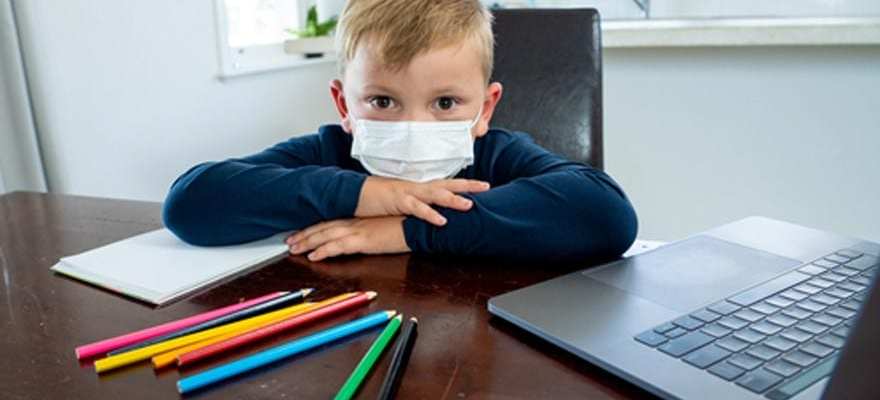
With so much misinformation out there about COVID-19, it’s hard to figure out what’s true and what’s not. Considering your health is at stake, it’s never been more important to find reliable info. So we went straight to the source — Northwell Health — to find out how the novel coronavirus can affect our family, our health, and what we need to do to protect ourselves.
Here are the top FAQ’s from parents about COVID-19, answered by healthcare professionals at Northwell Health.
How should I talk to my child about COVID-19?
The spread of coronavirus in New York and across the U.S. has many concerned, including children. Here’s how parents can reduce those anxieties and fears.
Are children at higher risk than adults for contracting COVID-19?
Based on available evidence, children do not appear to be at higher risk for COVID-19 than adults. Instead, it appears that they are at lower risk for severe infection. While some children and infants have been sick with COVID-19, the majority of the cases have been mild and involve dry cough and low grade fever.
Are children more likely to carry or spread COVID-19?
Young children are known to be transmitters of other viruses, such as influenza. Children should be encouraged to cover a cough or sneeze with a tissue or the inside of their elbow.
Are the symptoms of COVID-19 different in children than in adults?
No. The symptoms of COVID-19 are similar in children and adults. However, children with confirmed COVID-19 have generally presented with mild symptoms. Reported symptoms in children include cold-like symptoms, such as fever and cough. Vomiting and diarrhea have also been reported.
What can I do to help protect my child?
You can encourage your child to help stop the spread of COVID-19 by teaching them to do the same things as everyone else, including practicing good hand hygiene and social distancing.
Clean and disinfect high-touch surfaces daily in household common areas (e.g. tables, hard-backed chairs, doorknobs, light switches, remotes, handles, desks, toilets, sinks)
Launder items including washable plush toys as appropriate in accordance with the manufacturer’s instructions. If possible, launder items using the warmest appropriate water setting for the items and dry items completely.
Could ibuprofen worsen the disease for children with COVID-19?
Based on currently available information, World Health Organization (WHO) does not recommend against the use of ibuprofen (Advil®, Motrin®). WHO is aware of theoretical concerns on the use of ibuprofen for the treatment of fever for people with COVID-19 but adequate clinical data on adverse effects are lacking. Both acetaminophen (Tylenol®) and ibuprofen are available to treat fever and pain in children and acetaminophen is generally recommended as the initial medication.
My child is immunosuppressed. Is my child at higher risk of complications from COVID-19?
It’s not known yet whether some children may be at higher risk for severe illness, for example, children with underlying medical conditions and special healthcare needs. There is much more to be learned about how the disease impacts children but immunocompromised patients are, in general, at higher risk for infections.
Here is some additional information for families about COVID-19
Keeping Kids Safe From Coronavirus
What a pediatric infectious disease specialist wants you to know about COVID-19 and kids.
Parenting in the Age of COVID-19
Teens don’t like to stay in place for long– especially when adults say they have to. Many are asking if it’s really necessary. The answer is, of course, YES. Here’s how to get your point across.
Talking To Your Kids About Coronavirus
As schools close and activities are canceled, a child psychiatrist helps parents figure out what to say to ease their kids’ concerns.
How To Get Your Kids To Wash Their Hands—And Do It Correctly!
From stamping hands to singing songs, all the tricks and tips you need to ensure your little one’s hands are getting as clean as can be.
What Happens When You Have Coronavirus
Check out a helpful video portraying exactly what happens in your body when you have the coronavirus.
How To Stay Healthy—And Sane—When You’re Stuck At Home
Expert advice for everyone who’s skipping the gym, stress eating junk food, and letting their anxiety run rampant.

